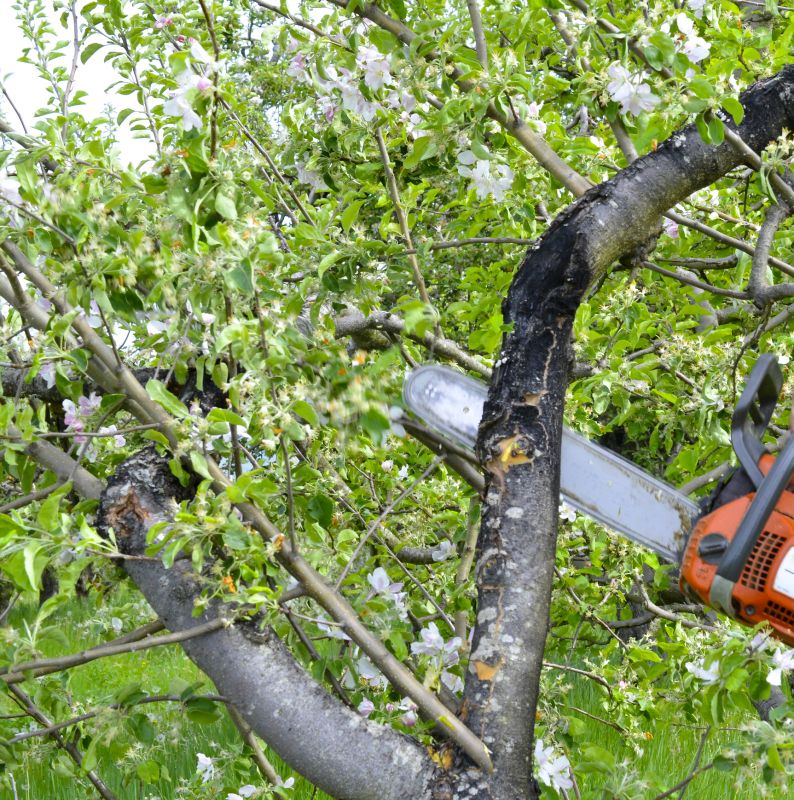Top-Rated Apple Tree Trimming Gear for Safe and Effective Pruning
Select from high-performance trimming gear that ensures safety and precision during every orchard maintenance session.
 Maintaining healthy apple trees through proper trimming is essential for optimal growth and fruit production. The process involves removing dead, diseased, or overcrowded branches to promote better air circulation and sunlight penetration. A variety of tools and products are available to assist gardeners and orchard managers in performing precise and safe trimmings. From traditional hand tools to specialized equipment, selecting the right products can make pruning tasks more efficient and effective.
Maintaining healthy apple trees through proper trimming is essential for optimal growth and fruit production. The process involves removing dead, diseased, or overcrowded branches to promote better air circulation and sunlight penetration. A variety of tools and products are available to assist gardeners and orchard managers in performing precise and safe trimmings. From traditional hand tools to specialized equipment, selecting the right products can make pruning tasks more efficient and effective.
Top Overall Option
Multi-Functional Pruning Shears
A versatile set of pruning shears designed for precise cuts and comfortable handling, suitable for both novice and experienced orchardists. These shears often feature sharp, replaceable blades and ergonomic grips to reduce hand fatigue during prolonged use.
Types of Products For Apple Tree Trimmings
Bypass Pruners
Ideal for clean cuts on live branches, providing precision and control for delicate trimming tasks.
Anvil Pruners
Suitable for thicker, dead wood, offering leverage and strength for heavy-duty pruning.
Loppers
Long-handled tools designed for reaching and trimming larger branches with ease.
Pole Pruners
Extendable tools that allow pruning of high branches without a ladder, combining safety and convenience.
Pruning Saw
A saw with fine teeth for cutting through thicker branches and woody stems efficiently.
Hedge Shears
Designed for trimming and shaping smaller branches and foliage around the tree base.
Electric Pruners
Battery-powered tools that provide effortless cuts for large-scale pruning tasks.
Cordless Chainsaw
Portable chainsaws suitable for removing thick branches or clearing overgrown areas.
Tree Climbing Gear
Safety harnesses and pole saw attachments for high pruning and safety during elevated work.
Pruning Kits
Sets that include various tools tailored for comprehensive apple tree maintenance.
Popular Choices
Lightweight and easy to handle, perfect for quick trimming tasks around small trees.
Designed for robust branches, providing leverage and strength for larger cuts.
Ideal for reaching high branches safely without ladders.
Offering detailed cuts for thicker branches, suitable for shaping mature trees.
Designed for comfort during extended use, reducing hand fatigue.
Offering cordless convenience for efficient trimming of multiple branches.
Suitable for larger pruning or removal of thick branches with ease.
Includes gloves, goggles, and harnesses for safe tree trimming practices.
Versatile kits combining various tools for comprehensive orchard maintenance.
Useful for repairing or propagating parts of the apple tree during trimming.
When choosing trimming products, it is important to consider the size and age of the apple trees, as well as the specific pruning techniques preferred. Proper tools can help reduce the risk of damaging the tree or creating entry points for pests and diseases. Safety features, ergonomic design, and durability are key factors that influence the overall effectiveness of pruning equipment. Additionally, some products are designed to improve comfort during extended use, which can be beneficial for larger orchards or intensive pruning sessions.
Using the correct trimming tools not only enhances the quality of pruning but also contributes to the health of the tree over time. Well-maintained tools ensure clean cuts that heal quickly, minimizing stress on the tree. It is advisable to regularly inspect and sharpen tools to maintain their performance. Whether pruning small backyard trees or managing a commercial orchard, having a reliable set of products tailored for apple tree trimming can make a significant difference in achieving healthy, productive trees.
Key Buying Considerations
- Tree size and branch thickness to determine appropriate tool strength.
- Ergonomic design for comfort during extended use.
- Blade sharpness and ease of replacement or sharpening.
- Safety features such as locking mechanisms and protective guards.
- Weight and balance to reduce fatigue.
- Material durability, especially for blades and handles.
- Ease of cleaning and maintenance of tools.
- Cordless or manual operation based on scale of work.
- Compatibility with other pruning accessories or attachments.
- Intended frequency of use and durability requirements.
- Availability of replacement parts and accessories.
- Storage options for organized tool management.
- Budget considerations balanced with quality and features.
- User reviews and ratings for real-world performance insights.
